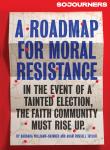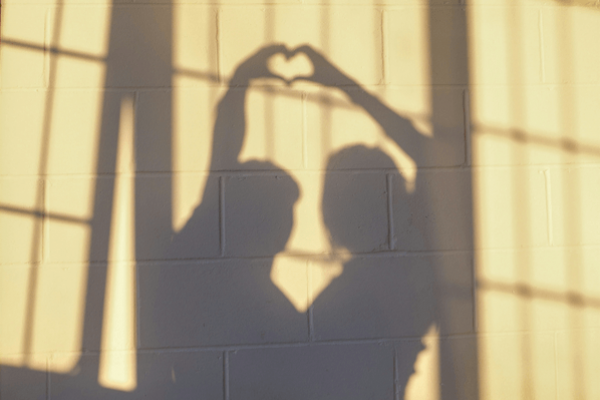FOR NEARLY 50 years, Sojourners magazine has taken bold, prophetic stands to fulfill its mission—to articulate the biblical call to racial and social justice, life and peace, and environmental stewardship—by telling stories that uncover injustice and offer solutions. I’ve been drawn to this mission since I was a college student studying journalism in the mid-aughts, and I am honored to be in a position to help build on that rich tradition as Sojourners’ new editor-in-chief.
In August, we revised our policies and procedures to strengthen our editorial independence and renewed our commitment to journalism that “comforts the afflicted and afflicts the comfortable” (for more on that change, click here). Amid a racial-injustice reckoning and the most consequential presidential election of my lifetime, this commitment to the Christian mandate of truth-telling drives our work.
But it’s worth unpacking what that means, as the practice of journalism itself has fractured into distinct schools: solutions journalism, community-centered journalism, engaged journalism, civic journalism, advocacy journalism, and more. Each of these applications attempts to answer the questions of how to make storytelling more impactful and reach new or underrepresented audiences. While increasingly popular in newsrooms throughout the U.S., including our own, these practices often bump up against long-established norms that claim that the credibility of journalistic work rests on being completely objective.
The problem, of course, is that those norms are driven by very homogenous—generally white and male—gatekeepers. It’s journalistic norms that taught us that police reports were to be considered factual accounts, that “fair and balanced” reporting requires “bothsidesism,” that “Black” in reference to a person’s ethnicity or culture should be lowercase (something Sojourners adhered to until recently), that journalists should resist relationship with the communities they report on, and so on.
Editorial independence—from donor, advertiser, and partner influence, and from organizational advocacy work—is an essential component of independent journalism and an important clarification for Sojourners as we look to the future. But editorial independence does not mean that we abandon our voice or that we lean into an outdated version of journalism that devalues perspective and prioritizes sameness.
Sojourners is committed to rigorous, independent reporting and analysis, but we do not shy away from our point of view. Our bias, in prioritizing the humanity and dignity of each person, only deepens our work. In naming social justice as a core value, as stated in our guidelines, we believe “the economically poor, politically marginalized, and socially vulnerable have the most urgent moral claim on the conscience of the church and the nation,” and our journalism reflects this—in the perspectives we publish, the stories we tell, and even in next steps we expect our readers to take.
While we don’t always get it right, and while we too are on the journey of examining our own norms for ways they fail to live up to our mission, we hope our readers will hold us accountable and that we can move forward together.

Got something to say about what you're reading? We value your feedback!







